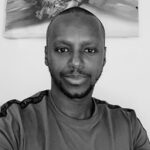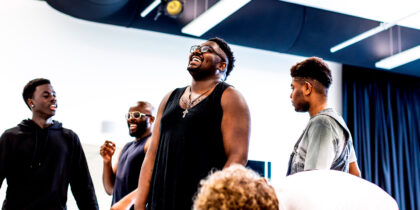By Abdi Hassan
I recall reading this quote, “I remember when I first went into hospital … I feared that I was going to die” (Service User)” – from the Breaking the Circles of Fear report when I was 20 years old. The report was a huge volcano of lived experience testimony with seismic human-centred recommendations. It has now reached its 20th anniversary, but as an expert by experience and Black African male, I would argue that we have not significantly improved services, outcomes, and care for marginalised communities.
The report deep-dived across other research reports and initiatives, namely the 1993 Mental Health & Britain’s Black Communities report, the 1999 The National Service Framework for Mental Health, the 1994 Black Mental Health: A Dialogue for Change et al. The themes across these reports are as valid today as they were two decades ago, such as the urgent need for culturally competent services, coproduced care pathways, equity and equality for marginalised communities, decolonising services, and divesting from whiteness.
the Patient and Carer Race Equality Framework gives us real hope to tackle the crisis facing marginalised communities
As a Community Organizer I am often campaigning for radical transformation, with a healthy push for dream matter and dark matter, ideas created by Dark Matter Labs, focusing on health-based services rooted in neighbourhoods and reimagining governance, so that marginalised communities can decide and dictate their care in collaboration, rather than being handled in a manner that others us and makes us feel less than.
I think about Breaking the Circles of Fear often and compare this report to Dr Jacqui Dyer’s incredible personal drive to advocate for equality across services having tragically lost two brothers. I admire her dedication to transform and campaign, which is why the Patient and Carer Race Equality Framework gives us real hope to tackle the crisis facing marginalised communities, and to address the disproportionate sectioning of Black men across the UK.
Coupled with the pandemic’s harm, we are walking traumas.
I am hopeful that Black voices are more prominent than ever before, but closer to home, I have real concern for my community. The Somali diaspora are often seen as a minority in the minority. As the Founder of Coffee Afrik CIC, our pan London research paper published in June 2022 captures raw data across other research papers, but the main recommendations are almost comparable to the Race & Health Observatory’s Ethnic Inequalities in Healthcare recommendations too. After 20 years we really are struggling across almost every area, such as income and housing. Coupled with the pandemic’s harm, we are walking traumas.
I call on central government, local authorities, mental health trusts, public health leaders and the third sector to reimagine public health as a form of human learning systems, so that each citizen receives careful and bespoke intersectional care. Reimagining Public Health, a research paper by the indefatigable Guppi Kaur Bola, offers deep insight about how transformation across mental health services and others is possible, in our emerging futures world and post pandemic.
But we must do better, for everyone that is voiceless.
This research paper is extraordinary: “can public health guide our understanding of power at a community level, enabling the design of Green New Deal policy that addresses the root causes of inequality, extraction and ill-health?” It is critical that we move from this extraction-led carceral system that leaves marginalised communities depleted, with worsening outcomes, mental health decline and continuous trauma.
I passionately believe in an innovative approach to mental health, which is centred on love, community led change, person centred care and that honours Indigenous wisdom and values. My father passed away ten years ago; he would often remind me that it is possible to take the right road and leave your mark on the world, so that those less fortunate can have a voice. I am proud of the work we do at Coffee Afrik, but as Anab Jain from Superflux says, “the times are urgent, so slow down.” I have deep gratitude for Centre for Mental Health, its compassionate leaders and to the communities I serve daily. But we must do better, for everyone that is voiceless. It is possible to create real transformation and change.









